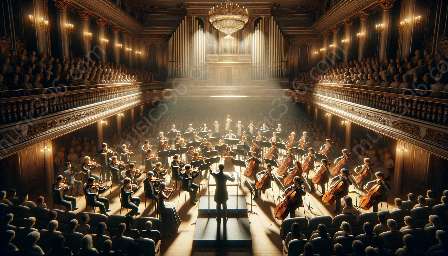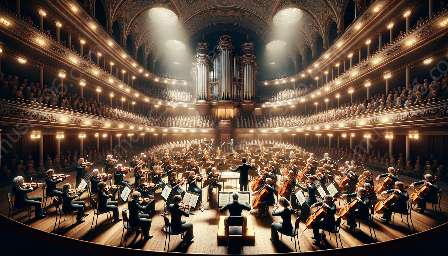Classical music has been greatly enriched by the contributions of three iconic composers: Joseph Haydn, Wolfgang Amadeus Mozart, and Ludwig van Beethoven. Each of these composers made significant contributions to the development of classical music, revolutionizing the genre with their innovative skills and techniques. Let's explore the major contributions of these legendary composers and delve into the skills and techniques that have shaped classical music.
Joseph Haydn: The Father of the Symphony and String Quartet
Joseph Haydn, often referred to as the 'Father of the Symphony' and the 'Father of the String Quartet,' made immense contributions to the development of classical music. One of his most notable contributions is the evolution of the symphony and string quartet forms. Haydn's innovative use of structure, rhythm, and orchestration paved the way for later composers, significantly shaping the classical music genre.
Haydn's skillful manipulation of musical form and his ability to create dramatic and expressive compositions greatly influenced the development of classical music. His use of classical forms, such as sonata-allegro, rondo, and minuet, set the standard for classical composition and became a foundation for future composers to build upon.
Wolfgang Amadeus Mozart: Mastery of Melody and Harmonic Progression
Wolfgang Amadeus Mozart, a prodigious and influential composer of the classical era, made remarkable contributions to classical music through his mastery of melody and harmonic progression. Mozart's compositions are characterized by their elegant melodies, exquisite harmonies, and innovative use of musical form.
Mozart's exceptional skill in crafting memorable and emotive melodies was unparalleled, and his ability to develop intricate and compelling harmonic progressions set him apart as a visionary composer. His works, including operas, symphonies, and chamber music, showcase his mastery of form and his profound understanding of musical expression.
Ludwig van Beethoven: Expansion of Musical Expressiveness and Symphonic Development
Ludwig van Beethoven, a trailblazing composer of the classical and early romantic eras, revolutionized classical music through his expansion of musical expressiveness and symphonic development. Beethoven's compositions pushed the boundaries of traditional musical expression and form, ushering in a new era of musical innovation and creativity.
Beethoven's groundbreaking use of musical motifs, thematic development, and dramatic musical narratives transformed the classical music landscape, inspiring future generations of composers. His symphonies, concertos, and piano sonatas exemplify his unparalleled skill in creating powerful and emotionally charged musical works.
Legacy of Classical Music Skills and Techniques
The contributions of Haydn, Mozart, and Beethoven to classical music have left an indelible mark on the genre, shaping the skills and techniques that define classical composition and performance. Their innovations continue to inspire and influence musicians and composers alike, serving as a testament to the enduring legacy of classical music.
From Haydn's mastery of symphonic forms to Mozart's proficiency in melody and harmony, and Beethoven's visionary symphonic development, these iconic composers have epitomized the essence of classical music skills and techniques. Their ability to weave intricate musical tapestries, evoke profound emotions, and transcend traditional musical boundaries has solidified their place as pillars of classical music history.

































